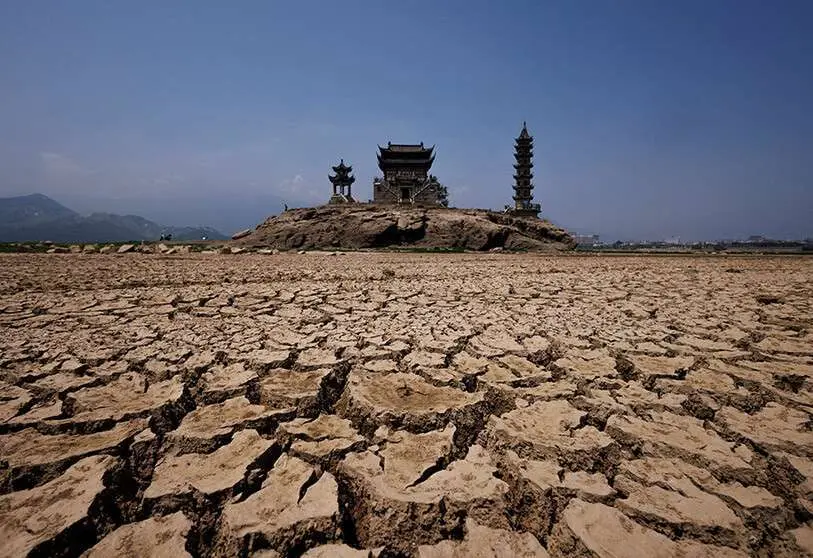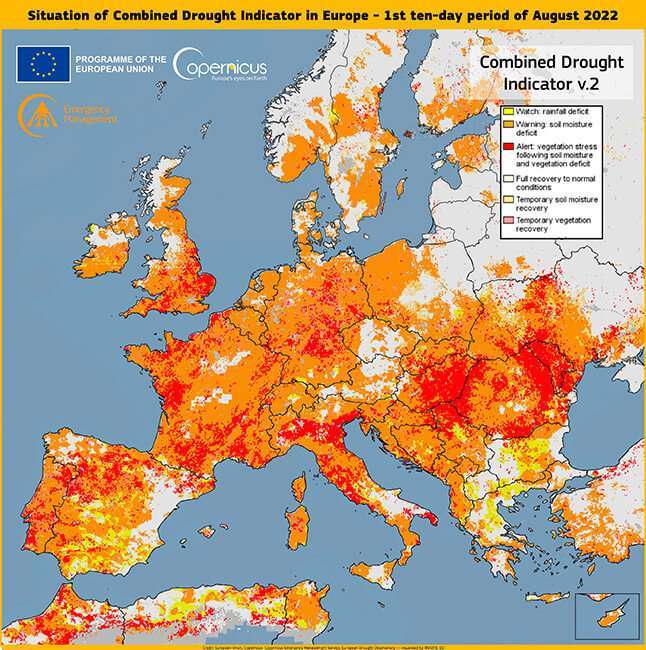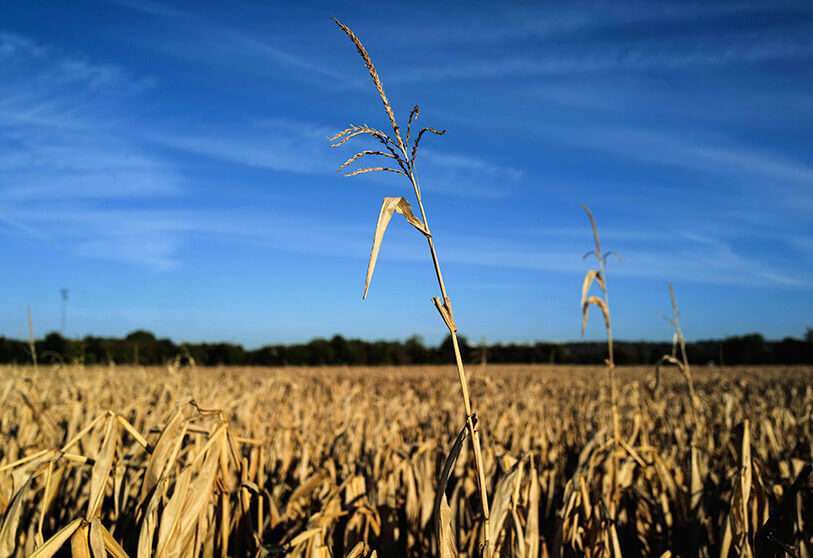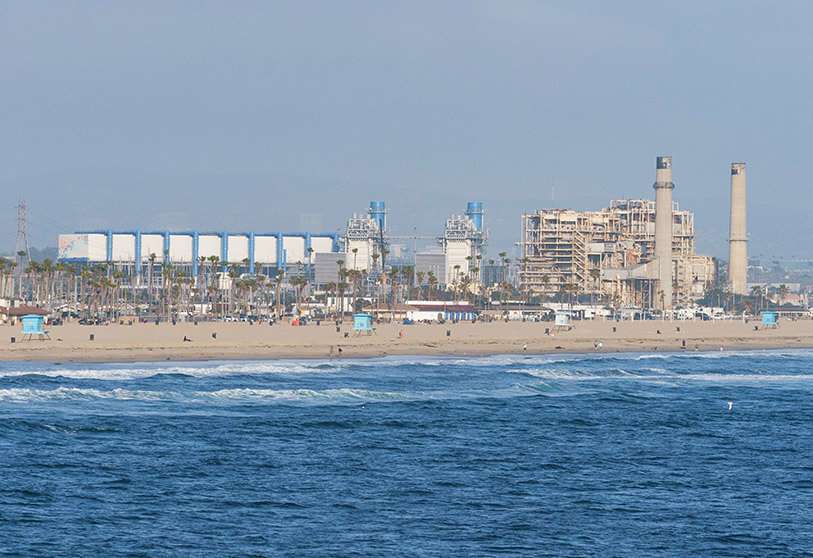The war of water

For several years now, some of us analysts who enjoy it as a distraction and personal interest, or those who are professionally dedicated to the study of conflicts, their causes, actors and repercussions or consequences, have been adding, each from their own perspective and opinion, some new reasons or facts that are or could be the driving force behind them, albeit with varying power and capacity and which are added to the traditional causes that have been dragging on for centuries.
All of them, and each one separately, are capable by themselves of generating major conflicts of an internal or international nature. These include cyber warfare, attacks on the economy, pandemics, climate change, mass migrations, the exploitation of natural resources, the spread of communism or jihadism, abusive and indiscriminate nuclear proliferation and, of course, the effect of the lack of water.

Although at first glance they may seem to be independent motives, many have a certain connection, complementing or deriving from each other. In any case, they are all important and it is certain that some are already in effect, fully effective or in the process of being implemented in the short to medium term.
But when we talked about water, we used to think that the lack of water in the very hot or warmer regions of the planet would lead to massive migrations in search of this precious transparent gold towards greener regions, and therefore with more foodstuffs to put in their mouths. But, at first glance, we did not see other, more serious consequences of the lack of water.
If we talked about climate change, its consequences included a lack of water, the desertification of regions bordering warmer regions and the need for a lot of water to cope with large fires, for agriculture or to feed the population and livestock.

Never, or at least I am not aware of it, was there any talk that soon even Europe, Asia and central North America would run out of water overnight, that their great rivers would come to reveal the secrets jealously guarded in their beds and that the marshes, apart from discovering jewels flooded for life, would see the death of tons of fish that for decades have lived with all kinds of luxuries without worrying about their subsistence, except for the food pyramid.
This year the generalised drought, the madness of man's hand and the lack of political foresight of the administrations have led to unbelievable levels of major fires not seen for centuries. Fires that are incapable of being tackled directly by the forces that fight them, despite the many sophisticated means that are currently being used in this fight and, unfortunately, everything suggests that the situation will increase in the coming years.
The lack of water flow in the main large and medium-sized rivers that cool the pools used to maintain the nuclear material in nuclear power plants in optimum conditions has led to technical stoppages in most of them and to the forced shutdown of hydroelectric power plants. This complicates combined production at a time when it is most needed, leaving it almost exclusively dependent on gas to produce electricity together with photovoltaic or aero-generators.

As if this were not enough, Russian countermeasures to European retaliation for the war in Ukraine by reducing or controlling gas flows to Europe have led us to believe that we will be unable to heat ourselves peacefully throughout this winter, which is combined with the restrictions or impossibility of using water due to its scarcity and its influence on energy production.
In short, we can see that water scarcity on the planet is not a trivial issue and that it is easily linked to other economic, industrial and neighbourhood issues. For the time being, this has not generated major migratory crises as feared, although we must not leave them behind, but it has generated a major revolution in our economies, in the effects on the sphere of comfort in which we hide or take refuge and, in all likelihood, it will be the cause of territorial disputes between regions and countries over the use and enjoyment that each of the actors makes of the water flows of the rivers that cross several of them.
This is the first unexpected point of friction due to the lack of a very precious element of unquestionable necessity for human beings. As we have seen, and as is happening at the moment, the generation of mixed energy will also be affected in hot periods, so that dependence on gas will increase exponentially, which raises the price of electricity considerably. Undoubtedly, if this drought persists, and if the lack of water in the reservoirs persists, sooner rather than later migration to less torrid, temperate and green areas will not be long in coming, because without water, crops are either non-existent or of very poor quality and low yield.

The animals on which we feed ourselves every day need large quantities of water and fresh feed for their fattening and subsistence; if these are not available or are too expensive, they will have to be slaughtered as soon as possible to minimise costs and losses as much as possible. In the short and medium term, this will lead to a decrease in food supply, an excessive increase in prices and major changes in our habits and customs, which not everyone is prepared to sacrifice.
The skyrocketing cost of energy has already proven to be a major blow to all economies, from the family to the world's most powerful and buoyant industry.
Many people and, above all, irresponsible governments, blame this situation solely and exclusively on the effects of the famous climate change, as if this phenomenon were a catch-all for everything. While it is true that climate change has a lot to do with it, it is also true that local, regional, state and international administrations have a big role to play in this, and not just take off their ties, turn off the lights in shop windows and buildings, covertly raise taxes and regulate the thermostat of air conditioning systems a few degrees up or down, as the case may be.
Measures must be taken once and for all, and there are some, to preserve the mountains and moors. Important and ambitious hydrological plans are needed to make it much easier to dam water in their courses, to guarantee hydroelectric power generation and to prevent huge quantities of water from being discharged into the sea during major floods when there is heavy rainfall. The mountains and forests must be genuinely cared for in order to prevent desertification, the definitive loss of underground aquifers and the progressive impoverishment of the land. Nuclear energy generation must be recovered and boosted by force, equipping power stations with larger cooling pools to avoid falling into the situation described above, which brings them to a screeching halt. The regeneration of faecal water through drinking water treatment plants, as well as desalination plants, is more than urgent and should cease to be testimonial. And finally, it would not be superfluous to invest more in artificial procedures to provoke rainfall.

Putting all our eggs in one basket (gas, solar panels and wind turbines) to generate energy is an act of political and civic irresponsibility - because these means and methods are not always guaranteed - and a high degree of green and environmentalist overreaction, This is an act of political and civic irresponsibility - because these means and methods are not always guaranteed - and a high degree of green and environmentalist overreaction, clearly communist in nature, which only serves to deceive unthinking and arrogant people who think only of trifles, or who, in their scale of values, put some minor and unimportant principles before the real needs for the subsistence of human beings.
The world population, although stagnating or even decreasing in some areas, is increasing in geometric or exponential progression in the global world. New customs, new ways of hygiene and other types of needs or demands in our habits mean that water consumption does not stop and is progressively increasing, reaching levels that were unsuspected just a few years ago.
Closing our eyes, looking the other way or blaming phenomena that appear to be beyond our control is the most irresponsible and execrable act that can exist.
We have reached a situation of crisis or war because of water, and not precisely because of obtaining water. The answer is quite simple: those who have the key to mitigate the effects of the increase in energy prices by opening and closing the gas transfer flows, those who have and control immense granaries of cereals and other extremely necessary crops and who, depending on their attitude, can save or endanger the lives of men and animals through their consumption; This creates a serious situation which will undoubtedly become fatal, especially if these keys are in the hands of the same personage, country or coalition of them.
Nothing so cheap and relatively easy to obtain can cause a serious butterfly effect on other factors which, if properly linked and properly exploited, will undoubtedly lead to high-intensity crises or even conflicts with serious international consequences.

